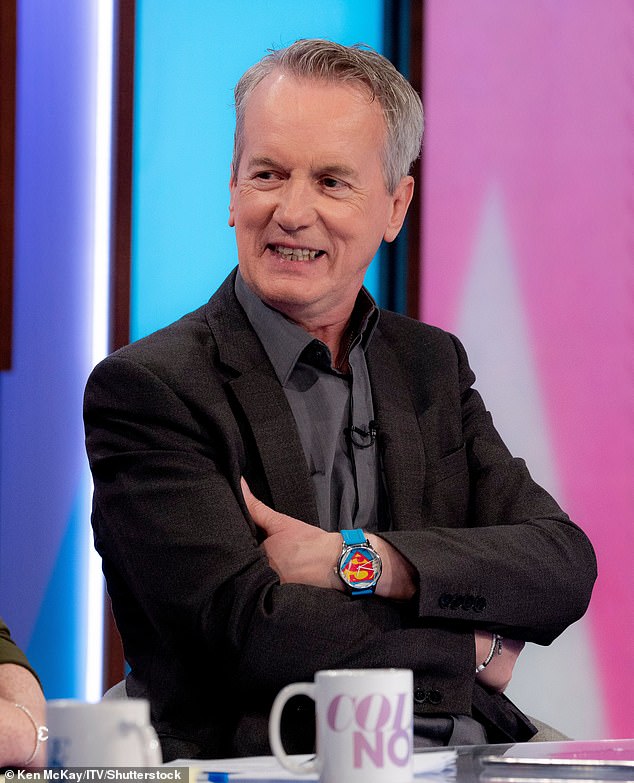Comedian Frankie Skinner recently discussed how he has been influenced by cancel culture and woke politics, noting that he is now ‘offended’ by his old ‘brutal’ jokes from the 1990s. Skinner acknowledged that cracking racist and sexist jokes was the norm when he first started out in comedy, but he has since changed as a person, particularly since becoming a parent. He mentioned that societal attitudes have shifted in recent years, prompting him to question and reevaluate his past behavior. Skinner emphasized that he sees this as a positive process of learning and growth rather than feeling forced or bullied by woke politics.
Although Skinner’s comedy act has not undergone significant changes due to cancel culture, he explained that his personal evolution has influenced his material. He highlighted the autobiographical nature of his comedy, emphasizing that he processes his experiences through a comedic lens. Skinner expressed that he now considers his past jokes offensive and would not perform them today. He also underscored the importance of self-improvement and rethinking one’s attitudes, suggesting that this is a key aspect of woke politics that can lead to positive change.
In contrast to Skinner’s perspective, fellow comedians like Ricky Gervais and Jimmy Carr have taken a different stance on the issue of cancel culture. Gervais has been highly critical of what he views as a form of censorship and described the phenomenon of wokeness as a kind of fascism that restricts free expression. He has argued that being offended does not automatically make someone right, advocating for a more open and diverse range of viewpoints and ideas. Carr, on the other hand, has adopted a more detached approach to criticism of his comedy, acknowledging that jokes can polarize audiences and that not everyone will necessarily appreciate his humor.
Carr faced backlash for a controversial joke in his Netflix special where he made a comment about the deaths of Gypsies at the hands of Nazis as being one of the ‘positives’ of the Holocaust. Despite the controversy, Carr defended the joke as being humorous, edgy, and educational. The joke sparked a debate on the boundaries of free speech, racism, and the role of comedy in addressing sensitive topics. Ultimately, Carr’s experience underscores the complex dynamics at play in the intersection of comedy, cancel culture, and societal norms.
Overall, the discussions around cancel culture, woke politics, and comedy reveal a nuanced landscape where personal growth, artistic expression, and social responsibility intersect. Various comedians navigate these issues in different ways, with some embracing change and self-reflection, while others push back against perceived limitations on free speech. The evolving nature of humor and its relationship to cultural sensitivities highlight the ongoing dialogue around what is acceptable, responsible, and thought-provoking in the realm of comedy. As comedians continue to navigate these complex issues, the broader conversation around cancel culture and its impact on creative expression is likely to remain a topic of ongoing debate and reflection within the entertainment industry.


